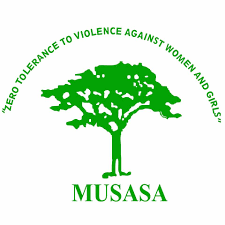
Civil society group Musasa Project says the freedom of movement allowed by the easing of the COVID-19 restrictions had made it possible for more girls and women to report cases of gender-based violence (GBV) that occurred during the lockdown.
BY HARRIET CHIKANDIWA
Addressing the Parliamentary Portfolio Committee on Women Affairs led by Mutasa North MP Chipo Madiwa, Musasa Project director Precious Taru said since the easing of the lockdown, the number of girls and women reporting cases of violence and rape had increased drastically.
“Since the onset of the pandemic all the Musasa shelter centres across the country have noted an upsurge in reported cases of GBV,” Taru said.
“However, towards the last quarter and the easing of the lockdown restriction, people are now able to move and report cases of GBV.”
Added Taru: “During the onset of the lockdown, we had very few people who used to come and report cases of violence. From September, more women and girls came to report cases of violence and as Musasa, we have managed to help them.
“Cases of gender-based violence increased during the lockdown between April and September and up to now, we have more than 11 000, which indicates an increase in the number of cases being reported.”
She said her organisation had been doing mobile counselling of victims because most of them were unable to visit their offices to report the abuse due to lockdown restrictions. It was also difficult to visit the perpetrators.
- Chamisa under fire over US$120K donation
- Mavhunga puts DeMbare into Chibuku quarterfinals
- Pension funds bet on Cabora Bassa oilfields
- Councils defy govt fire tender directive
Keep Reading
“Financial support would assist us. As an organisation, we rely on foreign services and donors, and we need funding for GBV to help meet the demands in the safe house facilities and services we offer to victims,” Taru said.
“Government has to support these counselling services for their survival so that people continue to access GBV services.”
She added: “While the one-stop centre concept has been very efficient and effective in addressing GBV and providing GBV-related services, another observation was made that survivors of GBV sometimes need a safe space to settle while they access relevant GBV services.”
Taru pleaded with the committee to help expedite the finalisation of pending GBV cases that are before the courts so that victims can get justice.
She also suggested that mandatory sentencing of rape perpetrators would help in lowering rape statistics, and promised to consult the President on matters concerning GBV and sentencing of the perpetrators.











